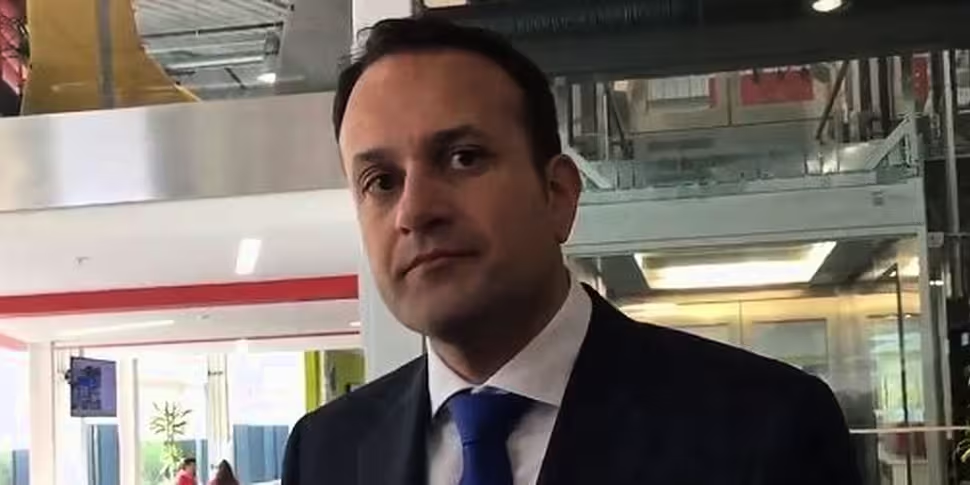Updated: 18.30
The Taoiseach Leo Varadkar has said his Government will not be recognising the result of an independence referendum in the Catalonia region of Spain.
Preliminary results show that 90% of those who voted in the referendum backed leaving Spain, Catalan officials say.
Catalonia's government said that of the 2.2 million voters who were able to cast ballots in the banned referendum, two million voted for independence.
Regional president Carles Puigdemont said Catalonia had "won the right to become an independent state", adding he would keep to his vow to declare independence unilaterally if separatists win more than 50% of the vote.
However, Spanish Prime Minister Mariano Rajoy insisted that no independence referendum had occurred 0 and that those who took part had been "fooled" into participating in a vote declared illegal by the country's constitutional court.
The European Parliament's has announced plans to hold a special debate on the referendum.
There were violent clashes as security forces dispatched by Madrid blocked polling stations and forcibly seized ballot boxes in an attempt to disrupt the vote.
EU politicians have condemned their use of force - and urged both sides to resume talks.
'We respect the laws of Spain'
The Department of Foreign Affairs says it is closely following the ongoing developments in Catalonia.
In a statement, it says: "With regard to the political context, it is the Government's view that it is for Spanish citizens to determine for themselves their preferred constitutional and political arrangements through their own democratic institutions and in keeping with the rule of law.
"The reports and images of clashes, violence and injuries are of concern. There are strong historic ties between the people of Ireland and Spain.
"Upholding the constitution and the rule of law in all its aspects is a key underpinning of a modern democracy.
"It is important now that steps are taken to reduce tensions and to find a way forward together.
"In this context, we note that the Spanish Prime Minister has indicated that he will discuss the issues with all of the parliamentary political parties."
But Mr Varadkar says they will not recognise the result.
"No we won't - as I said, we accept and respect the laws of Spain, the constitution of Spain and the territorial unity of Spain and it is a referendum that it would appear less than half of the population participated in.
"Although admittedly, it wasn't easy for people to participate - but that's a separate issue.
"We respect of course the laws and constitution of Spain which is a friend and ally of ours".
"Violence is never justified" says Taoiseach, but government won't recognise Catalan independence vote pic.twitter.com/3Mtq1aJbnv
— Sean Defoe (@SeanDefoe) October 2, 2017
During the '1-O Catalan independence referendum' spanish National Police and Civil guards prevent people from entering to the polling centres to vote | Image: Almagro/ABACA/ABACA/PA Images
Catalan officials claimed 844 people were injured, while reporter Mark Stone said he had seen voters pulled out of polling stations by their hair and stamped on by police.
Rubber bullets - illegal in Catalonia - were also used to disperse crowds, he added.
Video posted on social media shows violence in the streets:
El diputat del Parlament de Catalunya @albertbotran sent empès per la policia pic.twitter.com/TLrsNZzV7t
— XabiBarrena (@XabiBarrena) October 1, 2017
Moment en que sóc colpejat per l’esquena i al cap. Mentre gravava #CatalanReferendum pic.twitter.com/UIkdXfTwuK
— XabiBarrena (@XabiBarrena) October 1, 2017
Carrega policial pic.twitter.com/Nf3Yt5qGXL
— XabiBarrena (@XabiBarrena) October 1, 2017
"So-called referendum"
Challenged by Stone about the tactics used, Spain's Foreign Minister Alfonso Dastis said: "I don't agree with you that this is an extraordinary level of violence.
"You may think people were peacefully exercising their right to vote but the problem is this so-called referendum had been held to be illegal by the constitutional court."
During the clashes, riot police stormed a polling station near Girona, to the north of Barcelona, using a hammer to smash through a glass door of a school.
During the '1-O Catalan independence referendum' spanish National Police and Civil guards prevent people from entering to the polling centres to vote | Image: Almagro/ABACA/ABACA/PA Images
Mr Puigdemont had been due to appear at the polling station and was forced to cast his ballot in nearby Cornella del Terri instead.
In a televised address, Mr Rajoy thanked police for their clampdown on the vote and said they had acted with "firmness and serenity".
Accusing separatists of attempting to "blackmail" Spain, he offered all-party talks on the region's future.
People voting during the referendum day of Catalan independence in Barcelona, Catalonia, Spain | Image: Almagro/ABACA/ABACA/PA Images
Meanwhile, unions and workers' associations have called for a general strike to be held across the region on Tuesday, urging Catalans to protest against a "grave violation of rights and freedoms".
In travel advice dated September 20th, the Department of Foreign Affairs advised Irish citizens to avoid political demonstrations, monitor local media and follow the advice of tour operators and local police.












